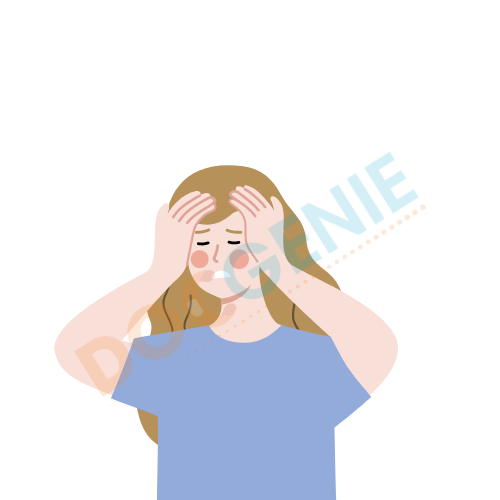Written by Dr. Rachna Kucheria (MBBS MAMC New Delhi, MD AIIMS New Delhi, MD (Family Medicine) USC California), one of the best general physicians in Delhi NCR

Panic disorder is a mental health condition where individuals have frequent, unexpected panic attacks. Understanding panic disorder, its causes, and available treatments is crucial for managing symptoms and going on with daily life.
What is Panic Disorder?
Panic disorder goes beyond experiencing occasional anxiety. It’s a condition where individuals have recurring panic attacks and persistently worry about having another attack, or the implications of one. This fear can lead to significant changes in behaviour, such as avoiding places or situations that might trigger a panic attack.
Symptoms of a Panic Attack
Common symptoms include:
● Rapid heartbeat
● Sweating
● Trembling or shaking
● Shortness of breath or feeling like you’re choking
● Chest pain or discomfort
● Nausea or upset stomach
● Dizziness, lightheadedness, or faintness
● Chills or hot flashes
● Numbness or tingling sensations
● Fear of losing control
Do note that a lot of these symptoms can also be symptoms of other conditions or problems, so you may not always be experiencing a panic attack.
Causes of Panic Disorder
While the exact causes of panic disorder aren’t fully understood, several factors may contribute to its development:
● Genetics: Having a family history of anxiety disorders, including panic disorder, increases your risk.
● Major stress: Being under a lot of stress can trigger panic attacks. ● Environmental Factors: Traumatic events, childhood abuse, and major life changes may increase the risk of developing a panic disorder.
Treatment for Panic Disorder
Treatment can help manage panic disorders and reduce the number of panic attacks you have. Some treatments include:
● Therapy: Cognitive-behavioural therapy (CBT) is a common treatment for panic disorder. CBT helps individuals identify and challenge negative thought patterns and develop coping strategies. Exposure therapy, gradually exposing oneself to feared situations, can also be beneficial.
● Medication: Anti-anxiety medications and antidepressants can help manage the symptoms of panic disorder. Consult a mental health professional to find the right medication and dosage.
● Lifestyle Changes: Incorporating techniques like meditation, yoga, or deep breathing to reduce stress can also help. Regular exercise, a healthy diet, and sufficient sleep are also important for overall wellbeing.
Consult a Professional for Panic Attacks
If you have any concerns or queries about panic disorders, consult a highly experienced psychiatrist at www.docgenie.in/psychiatrists and they will be more than happy to help you. All of our doctors are available for online video sessions. With DocGenie you can get quality medical help from the comfort of your home, in a cost effective way.
If you have any concerns or queries about Panic Disorder .Consult a highly experienced general physician on DocGenie. All our GPs are available for online video sessions. With DocGenie you can get quality medical help from the comfort of your home, in a cost effective way.
About the Author
Dr. Rachna Kucheria is one of the best general physicians in Delhi NCR. She is a US-trained Physician (Family Practice) on the lines of the old-fashioned ‘Family Doctor’ we grew up with and hope to find again. Her emphasis on early, accurate diagnosis; appropriate (few) medicines; and clear patient communication, sets her apart as one of the most trusted physicians in Delhi. She is licensed to practice medicine both in India & California.